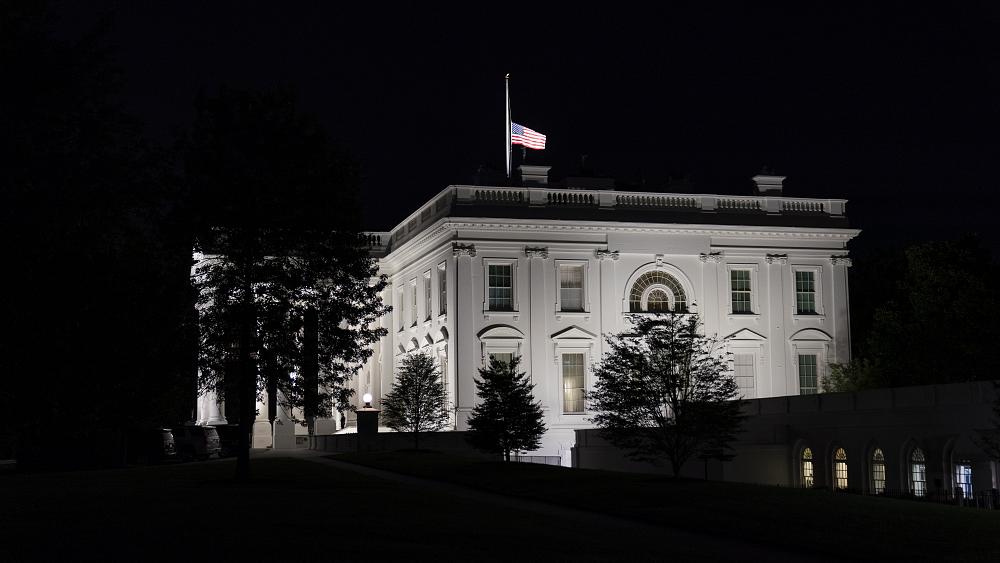
The death of Supreme Court Justice Ruth Bader Ginsburg has already set off a heated debate in the United States just six weeks before an already contentious presidential election.
The feminist icon of the US’ highest court had become legendary among left-leaning voters and she reportedly wanted her replacement to be named by a new president, according to NPR.
Candidates to the Supreme Court are nominated by the president but face a Senate hearing and vote to be confirmed.
Now, with many Americans already voting amid the coronavirus pandemic, Republicans have said the Senate should vote to confirm a Trump nominee to the Supreme Court.
Donald Trump tweeted that the Republicans were “put in this position of power and importance to make decisions for the people who so proudly elected us, the most important of which has long been considered to be the selection of United States Supreme Court Justices.”
“We have this obligation, without delay,” the US president tweeted on Saturday.
Democratic lawmakers, meanwhile, have said that the Senate should wait for a new president with candidate Joe Biden stating on Friday that a nominee should be determined after the election.
Releasing a statement shortly after Ginsburg’s death, Republican Senator Mitch McConnell, the Majority leader, said: “Americans reelected our majority in 2016 and expanded it in 2018 because we pledged to work with President Trump and support his agenda, particularly his outstanding appointments to the federal judiciary. Once again, we will keep our promise.”
“President Trump’s nominee will receive a vote on the floor of the United States Senate,” McConnell continued.
The only recent precedent comes from 2016 when Senator McConnell refused to confirm then-President Barack Obama’s Supreme Court nominee, Merrick Garland, eight months before the 2016 presidential election.
In that year, Republicans also had a majority in the Senate.
Chuck Schumer, a Democratic Senator from New York and the chamber’s minority leader, immediately tweeted McConnell’s own words from 2016 in the aftermath of Ginsburg’s death.
“The American people should have a voice in the selection of their next Supreme Court Justice. Therefore, this vacancy should not be filled until we have a new president,” Schumer tweeted.
Former President Obama also weighed in, stating that Republicans had “invented the principle that the Senate shouldn’t fill an open seat on the Supreme Court before a new president was sworn in.”
“A basic principle of the law — and of everyday fairness — is that we apply rules with consistency, and not based on what’s convenient or advantageous in the moment,” Obama wrote in his statement.
Democrats, who have tried to focus the election on Trump’s handling of the coronavirus pandemic which has killed more than 198,000 Americans, now face a political battle over the Supreme Court.
Supreme Court balance could be tipped for generations
The US Supreme Court currently has five right-leaning justices and three left-leaning justices. But the lifetime appointment means that the next nomination could heavily impact the balance of the court for generations.
The court recently decided cases on sex-based discrimination, religious discrimination, and immigration law.
People expect the Supreme Court to decide matters related to abortion and environmental questions over the coming years. Many conservatives would like to overturn the 1973 Roe v Wade decision that gives women access to abortions.
The US Senate has already confirmed 216 federal judges nominated by President Trump, meaning that over a quarter of active federal judges in the US were nominated by Trump, according to Pew. This includes two Supreme Court justices.
Trump’s last nominee to the Supreme Court, Brett Kavanaugh, was confirmed in a historically close vote after contentious Senate hearings during which Kavanaugh’s sexual misconduct allegations took centre stage.
Can Republicans confirm a Trump nominee in time?
Republicans in the Senate need at least 50 votes to confirm a Supreme Court nominee and currently have 53 seats. But at least two Republican senators, including Susan Collins and Lisa Murkowski, are on record as having said that it is too close to the election to confirm a nominee, and several are set to have tight Senate races in November.
A video emerged quickly on Twitter of Senator Lindsay Graham, a Trump supporter, stating in 2016 that he wanted people to use his words against him.
“If there’s a Republican president in 2016 and a vacancy occurs in the last year of the first term, you can say Lindsey Graham said let’s let the next president, whoever it might be, make that nomination,” he said.
Reporting emerged in the Washington Post newspaper on Friday that McConnell was encouraging Republicans to wait before speaking out on a confirmation.
Veteran Republican strategist Stuart Stevens, who does not support Donald Trump, said that McConnell was trying to “delay” Republican senators “who said they would not support a replacement pre-election from confirming their statements.”
“He wants time to try and buy their votes with legislation & committee assignments, threaten them if that fails & pressure them with the Coward Caucus,” Stevens tweeted.
Related posts:
Views: 0
 RSS Feed
RSS Feed

















 September 19th, 2020
September 19th, 2020  Awake Goy
Awake Goy  Posted in
Posted in  Tags:
Tags: 
















